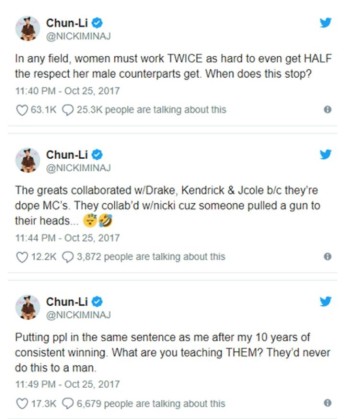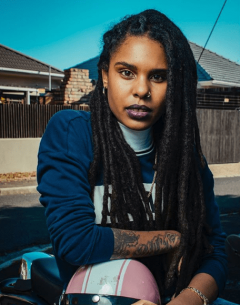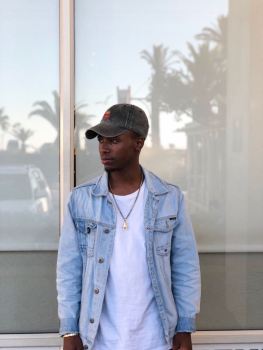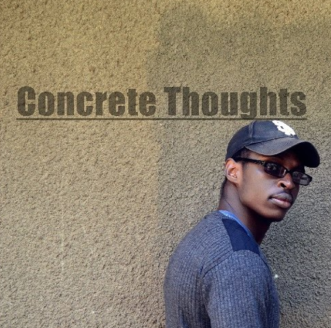“In any field women must work TWICE as hard to get even HALF the respect that their male counterparts get” – Nicki Minaj.
Nicki Minaj took to twitter in October last year, to express her frustration with the sexism present in the rap industry – an industry that does not respect female artists. Minaj is an incredibly successful artist who has been in the rap game for over ten years, winning almost 100 awards, and having even surpassed Aretha Franklin for most billboard ‘Hot 100 hits’ by any female artist. However, despite all this she is often not respected and recognized by the industry and highlights how her male counterparts are unfairly privileged. Her tweets were but the beginning, and have since sparked a conversation with many artists coming forward to express similar concerns.


Dope Saint Jude, a Cape Town based Hip Hop artist uses her platform to partake in this conversation. She says that her songs ‘Realtalk‘ and ‘XXplosive‘ “speak back to these issues of sexism in a direct and playful way”. She additionally went on to explain that music is a very accessible form of language and therefore an ideal platform to start these conversations and reach large audiences. Dope Saint Jude however agrees with Nicki Minaj and elaborated that not only do women have to work harder to succeed but that sexism is an issue that permeates all aspects of life, not just the music industry. While the platform of Hip Hop allows her to speak about sexism, the sexism present in the industry itself results in female voices, like Jude’s, not being privileged and as such not being far reaching.

VMIX, a 20-year-old up-and-coming hip hop artist based in Cape Town who has been been studying hip hop and making music for several years added to Jude’s sentiments about music being an ideal platform to address societal issues. He highlighted how artists such as “J. Cole and Kendrick Lamar have been doing that for years”, and that they are considered to be “two of the most important voices on our generation.” However, he pointed out that although male artists like J. Cole and Kendrick have many positive messages, the serious lack of female representation is a problem. VMIX explains that even though female artists speak about issues facing them, such as sexism, these messages never reach mainstream audiences. This particularly problematic as the lack of female subjectivity reaching mainstream audiences means that “the systematic patriarchy and sexism will only continue”.
One need only look at the billboard top 50 R&B /Hip Hop artists to see this is the case, with only four women featuring in this top 50. This alone is very telling of how female talent is not recognized and how our generation, as a result, is not hearing their subjectivity, allowing this cycle of marginalization to continue.

Victor J, an up-and-coming rapper and producer backed up this notion of female artists not being recognized by giving the example of Lauryn Hill. He pointed out that whilst most people recognize her as a singer, they “tend to overlook her lyrical ability as a rapper”, and he believes “this is due to her being female.” He further stated that “I believe If she was a male artist with that same level of skill she would be in many a Hip Hop fan’s top 10.” This is but one example in which we therefore see this system of sexism working itself out in the industry.
Furthermore, a vox pop conducted shows how these systems of sexism and patriarchy work their way down into the audience. Whilst these three knowledgeable artists could present me with many talented female artists (such as: Rouge, Nadia Nakai, Nicki Minaj, Cardi B, Lauryn Hill, Eve, Rapsody, Princess Nokia and Dej Loaf among many others) when asked for female artists most interviewees in the vox pop mentioned only Cardi B and Minaj or simply stated they did not listen to female artists. Jude, Victor and VMIX expressed that the female artists they had outlined would definitely reach larger audiences if they had been male.
This lack of representation according to Victor, Jude and VMIX is telling of a bigger societal issue. “It’s simply a representation of a flaw in society as a whole, not just the Hip Hop industry. There is a serious issue in the way women are portrayed throughout the entertainment industry”, says Victor. Dope Saint Jude highlights however, that the situation is not totally hopeless, and she believes things are starting to change. She added that she particularly enjoys “seeing artists like ‘Junglepussy‘, ‘Princess Nokia‘ and ‘Karol Conka‘ changing the narrative around sexuality and women’s bodies.”
Although there are positive moments such as these, and the use of this genre to speak back to sexism, the issue remains that female artists, although present, are simply not recognized enough. The industry does not privilege the female voice and as such audiences never learn their subjectivity. This allows for the cycle of patriarchal culture and sexism to continue. All three interviewees agree that this is a culture that NEEDS to change. Perhaps it is time that we as a society give the ladies a listen and integrate them into our playlists?


